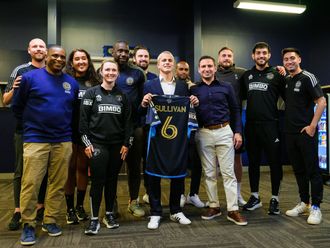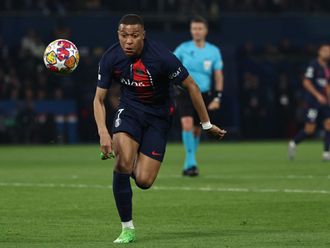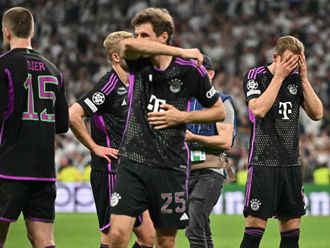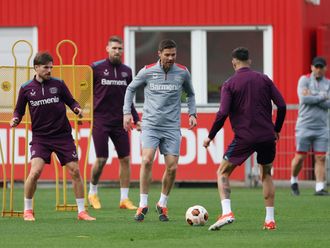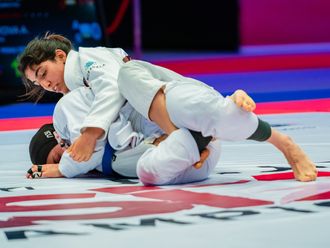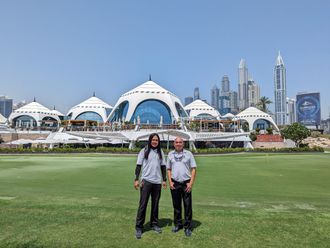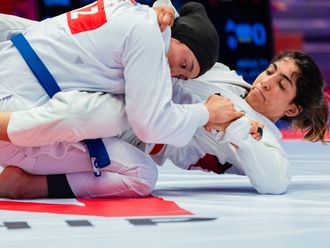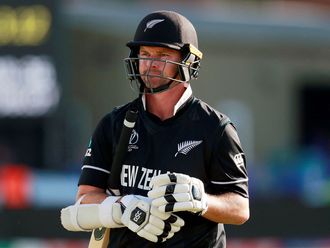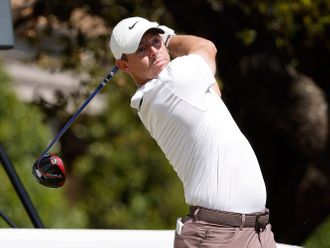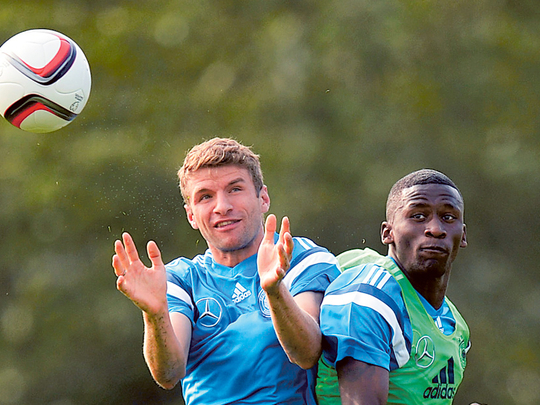
Paris: Exactly eight weeks on from Germany’s triumph over Argentina in the final of the World Cup in Brazil, the road to the 2016 European Championship begins on Sunday.
The first round of matches in a qualifying campaign that will run until November next year will be spread over three nights, with European football’s governing body Uefa eager to maximise television exposure for the leading nations.
And yet there is unlikely to be too much in terms of drama, with the finals in France to be the first in the competition’s history to comprise of 24 nations.
It is a far cry from the eight-nation event when France last held the tournament in 1984, and it means that of the 53 nations involved in qualifying, close to half will advance to a bloated finals along with the hosts.
With the top two in each of the nine groups progressing, along with the best third-placed team — the remaining third-placed sides will play off for four more berths — the chances of seeing any major nations miss out seem virtually non-existent.
That, coupled with the number of matches against minor nations, led England manager Roy Hodgson to warn that a less-than-half-full Wembley, as was the case for the midweek friendly against Norway, may become a common sight.
“I think you’ll find we’ll find it hard to bring attendances back to very high levels because of the opponents we’re playing, they won’t be exciting the public,” admitted Hodgson, although his side, after their abject failure at the World Cup, do face a genuine test in their opening Group E qualifier against Switzerland in Basel on Monday.
Germany could be forgiven for wanting to savour their World Cup success a little longer, but instead Joachim Loew’s side — without the retired Philipp Lahm, Miroslav Klose and Per Mertesacker or the injured Mesut Ozil, Julian Draxler and Mats Hummels — start their Euro campaign against Scotland in Dortmund in Group D on Sunday.
The Germans lost 4-2 in a World Cup final rematch against Argentina on Wednesday, but Loew is hopeful a new-look defence in particular will come good against the Scots.
“I am not worried. We need patience and time to get a settled defence. They are all highly talented players [but] they lack experience. We can’t expect them to be fully ready to replace the more seasoned players. We need to think about the long-term,” admitted Loew as Germany look to improve on a record of just one defeat in their last 51 tournament qualifiers.
Few doubt Germany will advance from the section, but beneath them Poland, Scotland, the Republic of Ireland and Georgia all appear to harbour genuine hopes of progressing too.
“Germany will qualify. Then it is a mini-league for the other two spots,” admitted Gordon Strachan, who has revived an ailing Scotland side since becoming coach.
The added presence of Gibraltar, appearing in a qualifying competition for the very first time, adds even more intrigue to Group D and they will play their first qualifier against Poland in Faro on Portugal’s Algarve while they await construction of a venue on the rock itself.
For other nations, the road to Euro 2016 marks the birth of a new era, in particular for Spain, who failed miserably in their defence of the World Cup but remain the two-time defending European champions.
“In the past we had to manage our success, which was also difficult, and now we need to manage the fact that we are coming off a defeat, or we failed to meet expectations,” said coach Vicente del Bosque. “Let’s see if we get it right as we have on other occasions.”
La Roja begin their bid to qualify from a modest Group C when they tackle Macedonia in Valencia on Monday, and they will do so without the likes of Xavi Hernandez, Xabi Alonso and David Villa, who have all retired from international duty.
Other countries have appointed new coaches, such as Euro 2004 winners Greece, who will be led by veteran Italian Claudio Ranieri as they start at home to Romania in Group F, while the Netherlands are now led by Guus Hiddink after Louis van Gaal took them to third place at the World Cup.
The Oranje are away to the Czech Republic in Group A on Tuesday, while Antonio Conte’s first competitive game as Italy coach will be in Norway in Group H the same day.


